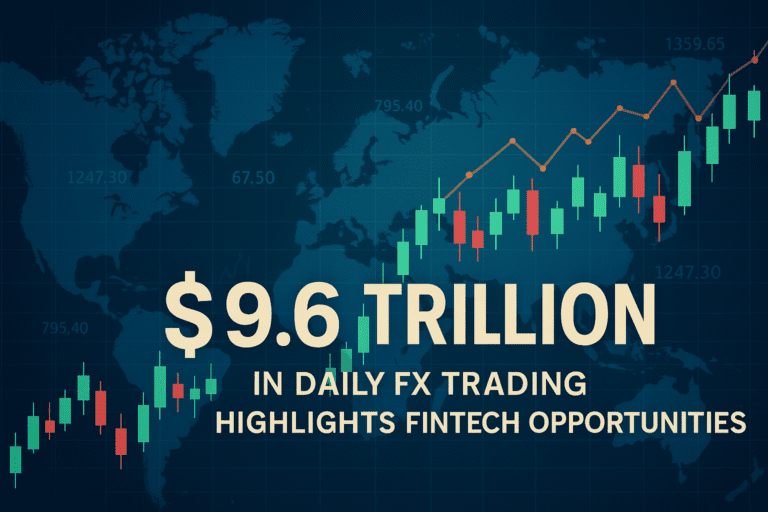Global FX trading volumes surged to $9.6T daily FX trading in April 2025, according to the latest data from central bank surveys. This record figure places foreign exchange at the heart of global financial flows and opens clear opportunities and challenges for fintech startups.
Cross-border payments are central
For fintech startups in payments, the $9.6T daily FX trading milestone underlines the importance of offering low-cost, fast, and transparent cross-border solutions. Startups focused on remittances, B2B payments, and real-time settlement have a direct path to capture market share by addressing friction in existing systems.
Liquidity as a competitive edge
High FX trading volumes reflect deep liquidity across currencies. Fintech startups that integrate with liquidity providers or build API-driven platforms gain an edge in pricing efficiency. With $9.6T daily FX trading, competition among startups will increasingly revolve around spreads, speed, and automation.
Growth of derivatives and hedging tools
The data also highlights a rise in OTC interest rate derivatives, signaling demand for risk management tools. Fintech startups offering hedging platforms, AI-driven risk analytics, or simplified access to derivatives are well positioned to serve SMEs and corporates navigating currency volatility.
Technology infrastructure demands
Processing even a fraction of $9.6T daily FX trading requires robust infrastructure. Startups entering this space must prioritize scalability, cybersecurity, and compliance readiness. Cloud-native platforms, real-time monitoring, and AI-driven fraud detection are no longer optional but essential for credibility with institutional partners.
Regulation and trust
As global volumes expand, regulators will intensify scrutiny of FX practices. For fintech startups, this means aligning compliance frameworks with international standards. Those that balance innovation with trust will be better positioned to form partnerships with banks and institutional players.
Investor and partnership opportunities
Investors recognize the scale of $9.6T daily FX trading. Startups that can articulate how they plug into this vast ecosystem will find stronger backing. Strategic partnerships with banks, payment providers, and liquidity aggregators will remain vital to scaling solutions.
The bottom line
The surge to $9.6T daily FX trading confirms the centrality of currency flows to the global economy. For fintech startups, it means a bigger addressable market, but also higher expectations for transparency, efficiency, and compliance. The winners will be those who align speed and cost savings with institutional-grade reliability.

